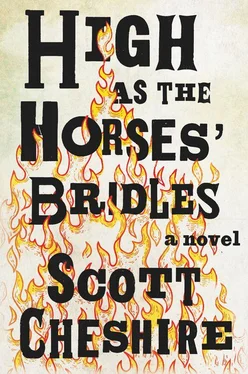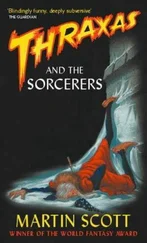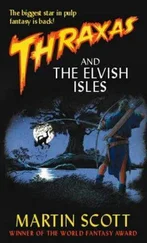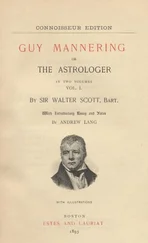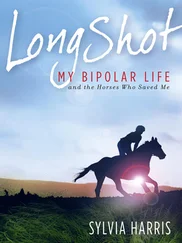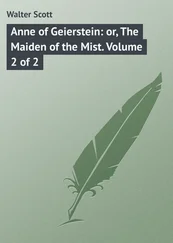I had been casually talking with one of the nurses — in the elevators, or smoking out front in the parking lot. Not my father’s nurse, but one of those passing nurses, always swishing through the hallways in her mint-green scrubs. Her name was Leeann and she had a bright blond and glorious Afro, magnetic blue eyes. Skin so fair I could see veins in her cheeks. I’d spoken with her a few times. Always something like Hello, ma’am, overly polite, and she’d say something like Hello, yourself, before I finally realized we were flirting.
We wrestled in a maintenance closet at two o’clock in the morning, where she pressed me up against the wall like this was our last, last chance, and the world was falling apart outside.
The next day, feeling guilty, I wrote to Sarah.
I considered calling. She deserved to know more about Dad’s health, but calling felt too easy, anyway. And when was the last time I actually wrote a letter? There was something deliberate and mature about it, or at least I thought so, maybe even romantic. I sent her a postcard of the New York skyline: “Dad’s not doing well. Things don’t look good. I need to sell the house, which is a mess. I thought you’d want to know.”
She called me a week later. It seems Nikos had a conference at CUNY, and while she hadn’t planned on joining him, maybe now she would. She could check in on Dad and say hello, if I was open to it.
By the time she arrived, I was no longer sure I wanted her around, which isn’t to say I didn’t. I did want her, very much. I wanted her there in the house and in the hospital sitting vigil with Dad. I wanted her back home in Otter. And I wanted her every morning after, beside me wrapped in a warm toss of bedsheets, from that day on forever forward. I opened the door and there she was, in her arms a bright white daisy explosion in a cheap glass vase.
She pushed them at me and said, “You’re supposed to take them.”
She walked past me into the hallway. “So how far away is the hospital?”
In that moment, it was finally over for me. Not just because we were finished, but because we were both revealed, each of us new to the other. I saw her in the light of her new love, and I was standing there in the slant space of my father’s sickness, all of which hurt crushingly only for as long as it took me to turn and follow her inside. I asked her where they were staying.
“Downtown, with a friend.”
“One of his.”
“Yup. My friend, too, I guess.”
“I’m happy to hear it.” I told her some more about Dad, as she placed the flowers on the dining room table.
She looked around. “This is why I love your father. He is so sad and totally fascinating. Like one of those mystics in the desert. But it’s Queens.”
I think it was actually those silly flowers that finally let the old house breathe. Like I’d been holding my breath for weeks, I let go a long low sigh.
She said, “I don’t see any cat shit. So there’s that.” She took a protein bar from her pocket, and pulled back the wrapping. Took a bite, and pulled a daisy from the vase, gave it to me. “How can I help?”
She said she wanted to help clean while I sat with Dad. Nikos was out and about working anyway. By the time I got back from the hospital, she’d scoured the kitchen floor, emptied out a closet, and started organizing some of Dad’s things. She said she wasn’t sure if she could come back the following day. But she did. And again said she could only stay for an hour or so. Nikos (I still find the name preposterous), he understood.
But she stayed all day long.
“He wants me to be happy,” she said. “Anyway, he’s busy with social functions. Meeting with colleagues. He’s never been to New York.”
The days got shorter as we filled the boxes with garbage and set them on the street. We rented a Dumpster and joyously threw bags from the upstairs bedroom windows. We kept an ongoing pile of possible saves — the more interesting-looking books, the cleaner clothing. A few tchotchkes, the figurines my mother favored, and a sun-bleached jawbone my father found upstate in 1987. He’d Sharpied the date at the gum line. The wooden cross. The plate. I packed the family albums, and we braved the attic and its noxious air, urine-colored fiberglass falling from the rafters in leprous chunks. We sopped up puddles in the basement, and tried to identify a blue spongy mold. We boxed up his spirals and his papers, because God forbid some garbage picker, some young and impressionable squatter find my father’s dreams and exegeses and start a cult. We nudged the cats into the backyard. I carefully packed his mail-order shield in bubble wrapping, removed the red bulb.
Sarah asked if she could stay at the house for a couple of nights, because it was a waste of time going back and forth on the trains. It would just be for a day or two, because Nikos’s conference was over; he had other business, but not much, left. I said of course. We’d pretend like it was normal and comfortable. I think it felt, for both of us, like a way to fully bury our past. She slept in my old room, on a bare mattress on the floor. I slept downstairs, on the living room sofa where I’d been from the start. Sarah went and sat with Dad at the hospital, and he never said a word to her. He just lay there in his semiwakeful state, eyes closed, alpha waves ebbing on the EEG. I was happy to have a break from the hospital, because I don’t like hospitals. There’s nothing so strange about that. Amad told me he’d fainted at the hospital before even arriving at their inaugural Lamaze class. The doctor talked to me about refeeding syndrome, and the possibility of cardiac arrest and coma. We had to sell the house.
That second day, we both stayed home and cleaned, staying out of each other’s way, mostly, and not owing each other a thing. It was like living together again but without the relentless loan and debt of love, or even good conversation. And I finally made a clear and deliberate decision, one I was sure she’d made a long time ago about me. I decided it would be healthier for me if I just didn’t want to want her anymore.
* * *
I was sitting beside Dad, one morning at the hospital, marveling at the mysterious thing an eye can become when it sees. I asked him if he could see me. He never answered or moved his head. He just looked. I was flipping through the channels, when I looked up and saw the ghostly face looking down at me. I jumped to my feet, approached the TV. It was Issy. I don’t know how else to say it, but I saw his angelic baby face up there on the TV screen, his name in white graphic letters, Ismael “Issy” Demundo. I looked around for Sarah because I wanted someone else to see. Does anybody see this? But she was back at the house.
The anchor said that recent information had come to light regarding Issy’s disappearance, maybe even a possible suspect, whose identity was still completely unknown. A bartender had come forward and described a conversation he’d overheard twenty-five years before. He said the man had a mustache and wore a dirty white T-shirt. The man talked about the missing little boy from Richmond Hill, said he was the one that took him. And all of this would probably not have gotten the attention of the news if not for the fact that the latest episode of a detective show called Cold Capers was based on Issy’s story, on the resurrection of Issy’s case, which had long gone cold but now had a fresh new lead. The photo was the same as the one from our family album. I noted the date and the time of the episode.
Later that afternoon, I read a piece in the Daily News on Issy’s case, and the perceived epidemic of disappearing children in the 1980s. The article claimed it was most likely media coverage that had changed, and the proliferation of access to the coverage, but that things were no better and no worse, back then, before, or since.
Читать дальше
